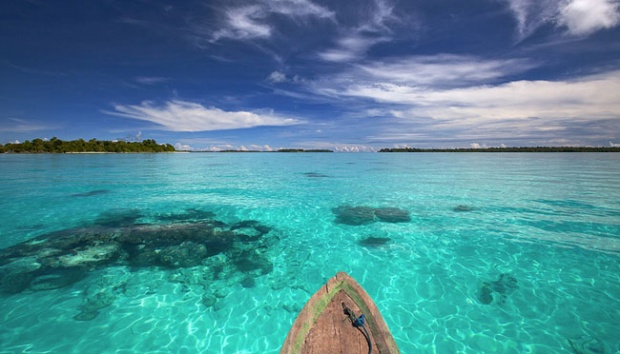Ticking Climate Clock
THE climate crisis has become a serious threat for all of us. Intergovernmental Panel on Climate Change’s (IPCC) report on February 28 indicates that small islands and coastal cities are increasingly facing hydrometeorological disasters as a result of the climate crisis. These hydrometeorological disasters are floods, extreme weather events such as high winds and tropical cyclones, landslides, forest fires, dry land, as well as erosion and tidal waves.
Indonesia, as an archipelago nation with more than 13,000 small islands, has already felt the impact. Outermost islands near the borders with neighboring countries, such as Tolop Kecil and Putri in the Riau Islands, have experienced erosion and storm surges. Seawater flooding also has become a serious problem for 50 cities and regencies located on the coastline.
Meanwhile, the National Disaster Mitigation Agency’s (BNPB) data shows that in 2021, there were 5,402 natural disasters that occurred in Indonesia. For hydrometeorological disasters, there were 1,794 floods, 1,577 cyclones, 1,321 landslides, and 91 instances of storm surges and abrasion.
Several Tempo journalists go to the impacted areas to confirm the information, among others to Tolop Kecil and Putri islands, also areas on the north coast of West and Central Java. We also did research and interviewed communities, researchers, and government officials to dig deeper into the problems and the mitigation efforts.
We make this report our cover story this week to open our eyes that we are having a climate crisis right in front of us. We have felt it. The government also estimates that economic losses resulting from climate change could reach Rp544 trillion between 2020 and 2024 if there are no policy interventions.
The government and communities have done several initiatives, from adaptations to mitigations, with many programs to prevent the worsening impacts of climate change. The government has allocated a budget for climate change mitigation of about Rp86.7 trillion last year, an increase compared to the previous year at Rp77.81 trillion. But it is still far from sufficient. We need more determination and significant efforts.
Enjoy the Weekly, and stay well.
Purwani Diyah Prabandari
Managing Editor of Tempo English
Climate Wreaking Havoc on Islands
Hydrometeorological disasters caused by climate crises are occurring more frequently. Several small islands and coastal towns are becoming inundated and are in danger of going underwater completely.
Insufficient Efforts to Face the Winds of Change
The government estimates Rp544 trillion in economic losses due to climate change from 2020 to 2024. Climate change budgets are insufficient.
Placing Hopes in Insurance
The government depends on insurance plans to protect fishers and farmers from the impact of climate change. They are beset with complaints.
Mitigation Using Mangrove and Coffee
The government and communities are trying to mitigate the direct impacts of climate change. This includes planting mangroves and coffee to absorb water in the upstream areas.
The Maldives is Dependent on What Happens Elsewhere in the World
The Maldives’ Special Envoy for Climate Change Sabra Ibrahim Noordeen discusses how serious the impacts of climate change to her country that have 1,190 islands.
Climate Change’s Disasters
An editorial opinion on how Indonesia faces an increasing threat of disasters caused by climate change, and that the development which ignores the safety of the environment must be abandoned.



















